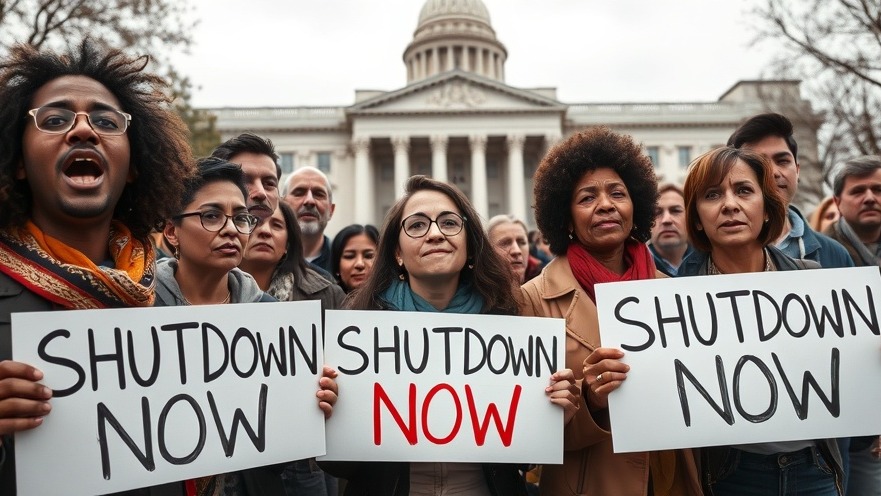
Understanding the Impacts of a Potential Government Shutdown in Florida
As tensions mount in Washington over government spending, Floridians are right to wonder about the ramifications of a potential shutdown slated for October 1. A standoff between President Trump and congressional Democrats revolves around critical funding issues that underscore the impact of politics on everyday life in the Sunshine State.
What Exactly Happens When the Government Shuts Down?
In the wake of a shutdown, federal agencies will cease operations deemed non-essential, setting off a chain reaction that affects various programs at the heart of many Floridians' lives. Essential services such as military operations will continue, but countless others, including funding for SNAP and the approval of Small Business Administration loans, will grind to a halt. The chaos surrounding a government shutdown isn't new; historically, these events have led to furloughs for hundreds of thousands of federal employees, impacting the local economy and public services. In the past, many incurred debts without any certainty of receiving back pay, leading to personal financial strife that ripples throughout the community.
Historic Context: Lessons from Previous Shutdowns
To understand the stakes involved, it’s important to look back at recent shutdowns. The longest recorded event spanned 35 days during Trump's administration, highlighting how prolonged stagnation can lead to increased frustration and uncertainty in the public sector. Previous shutdowns have resulted in dramatic reductions in food inspections and other safety services, raising concerns about public health and welfare.
Social Security and Public Health Programs in Jeopardy
One of the most pressing concerns for older Floridians is how a government shutdown could disrupt Social Security payments. If the shutdown lingers, essential programs that support senior citizens and vulnerable populations may falter, leaving those relying on these services in a perilous situation. The preventive health measures supported by the CDC may also face significant delays, particularly important amid ongoing public health narratives related to COVID-19 and other pressing health issues. The ramifications of these pauses in service can lead to widespread misinformation and fear throughout communities.
Future Predictions: Economic and Social Impacts
If lawmakers cannot reach a consensus, the fallout will likely extend beyond the immediate cessation of services. Economists warn that shutdowns diminish consumer confidence, which can exacerbate existing issues such as inflation and unemployment—a concern particularly relevant as Florida emerges from the economic challenges posed by the pandemic. Further, businesses dependent on government contracts may find themselves in dire circumstances, potentially leading to layoffs and reduced economic activity.
Emotional Responses: How Floridians Might Feel
The uncertainty surrounding a government shutdown can drive fear and frustration among Floridians. For parents of children reliant on nutritional programs like WIC and Head Start, anxiety over potential disruption to essential services impacts daily routines and financial stability. Understanding that this is not merely a political issue but a human one, it’s vital for the community to engage in dialogue, voicing concerns to local representatives to advocate for essential services.
Call to Action: Stay Informed and Voice Your Concerns
As the situation develops, it’s crucial for residents to stay informed through reliable national news headlines and updates on political events. Engaging in discussions about the implications of a potential shutdown fosters awareness and encourages collective action to prioritize essential services in Florida. In times of uncertainty, it’s vital to remain proactive rather than reactive—make your voice heard and push for a resolution that protects the well-being of all Floridians.
 Add Element
Add Element  Add Row
Add Row 



Write A Comment